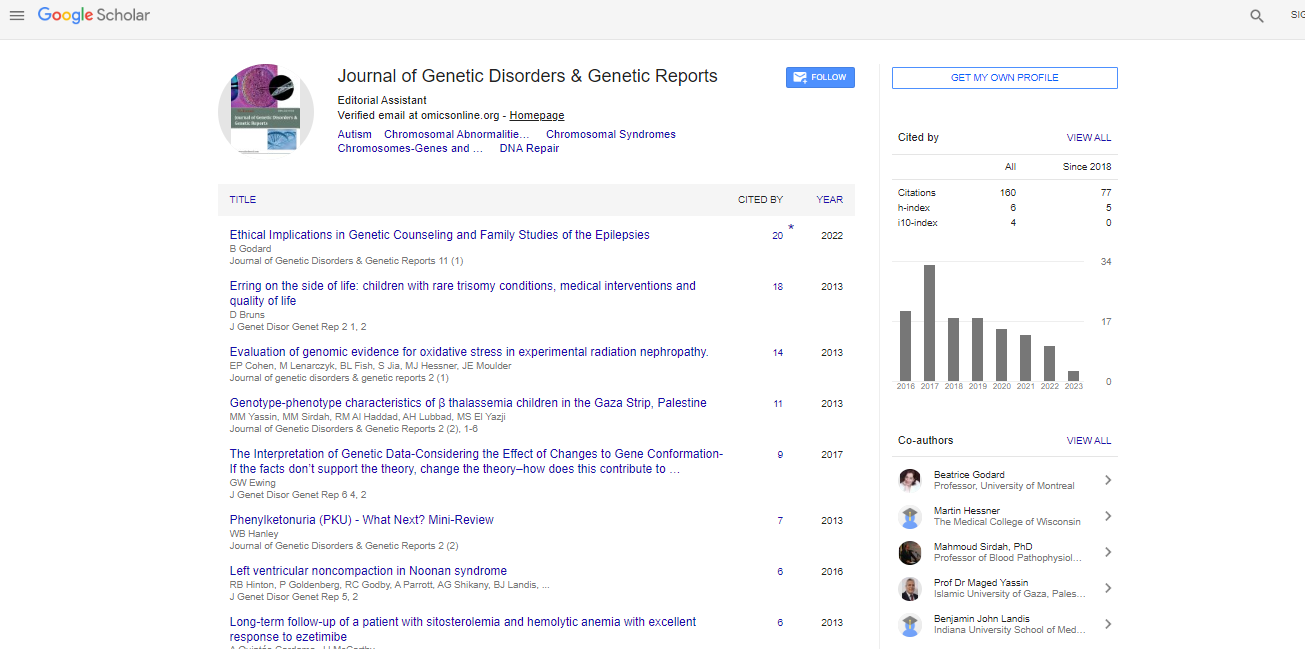Case Report, J Genet Disor Genet Rep Vol: 7 Issue: 3
Whole Exome Sequencing found a Novel Truncating Mutation within CNTNAP2 Gene in an Iranian Patient with Mental Retardation
Mehrnoosh Shokoohi1, Mohammadreza Hajjari2*, Javad Mohammadiasl J3 and Maryam Tahmasebi Birgani MT3
1Noor Genetics Lab, Ahvaz, Iran
2Department of Genetics, Faculty of Science, Shahid Chamran University of Ahvaz, Ahvaz, Iran
3Department of Medical Genetics, School of Medicine, Ahvaz Jundishapur University of Medical Sciences, Ahvaz, Iran
*Corresponding Author : Hajjari M
Department of Genetics, Faculty of Science, Shahid Chamran University of Ahvaz, Ahvaz, Iran
Tel: +98-6133330010
E-mail: Mohamad.hajari@gmail.com
Received: June 30, 2018 Accepted: August 21, 2018; Published: August 28, 2018
Citation: Shokoohi M, Hajjari M, Mohammadiasl J, Birgani MT (2018) Whole Exome Sequencing found a Novel Truncating Mutation within CNTNAP2 Gene in an Iranian Patient with Mental Retardation. J Genet Disor Genet Rep 7:3. doi: 10.4172/2327-5790.1000177
Abstract
Intellectual disability (ID) is a major health problem mostly with an unknown etiology, affecting 1–3% of the general population. Discovering the genetic cause of these cases is dramatically challenging. Nowadays, the next-generation sequencing (NGS) technology provides advantages for the genetic diagnosis of ID. Here, by the help of Whole exome sequencing, we report an Iranian family with a child having non-syndromic ID (NS-ID) with autistic behaviors and seizure. The results revealed a novel nonsense mutation (c.3283CGA>TGA) located in an autozygous region on chromosome 7, leading to an amino acid change to terminal codon (p.Arg1095*) in CNTNAAP2. The affected child was homozygous for the mutation and his parents were heterozygous as expected in autosomal recessive inheritance. In conclusion, our study identified a novel mutation in CNTNAAP2 gene, and showed that WES provides advantages for detecting novel ID associated variants and can greatly facilitate the genetic diagnosis of the disease.
 Spanish
Spanish  Chinese
Chinese  Russian
Russian  German
German  French
French  Japanese
Japanese  Portuguese
Portuguese  Hindi
Hindi 



